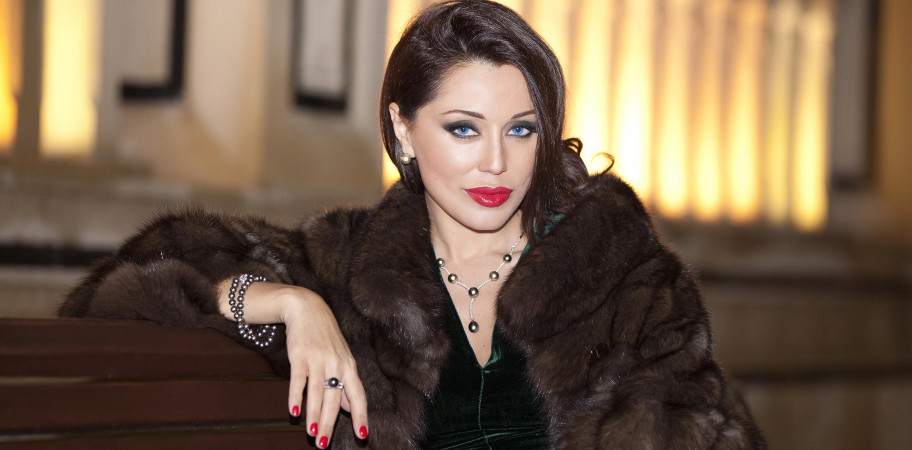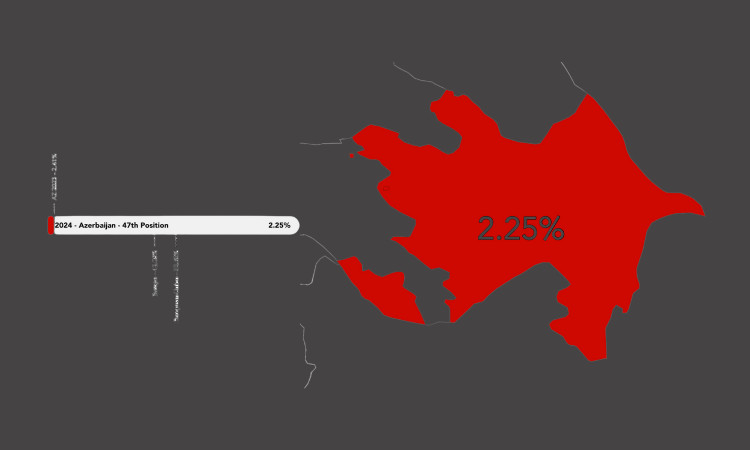Röya’s new music – Don’t Be Defeated by Pride
Röya has once again delivered an emotional and profound touch with her recently released song “Pride”
15/Jun/25
2970
Röya’s new music – Don’t Be Defeated by Pride
Röya has once again delivered an emotional and profound touch with her recently released song “Pride” (Qürur). The lyrics emphasize regret, love, separation, and—most importantly—how pride can erect barriers between people. Coincidentally, the video release coincided with Pride Month, widely celebrated by the LGBTQ+ community around the world.
“Don’t be defeated by pride. Let love always triumph...” This call resonates with many LGBTQ+ individuals because love itself often must remain hidden, and must “lose” to pride—more precisely, to fear, isolation, and societal pressure.
The line in the song, “I’m afraid, you’ll overthink, let there be separation...” reflects a reality frequently encountered in LGBTQ+ relationships—the indecision between living love openly and protecting it. Röya, in her song, also alludes to the transience of time: perhaps the only thing that truly overcomes love is the fear of experiencing it.
Sometimes a song, a line, or a silent gesture is enough to be courageous. Maybe this song can be the step someone needs during Pride Month to protect or live out the love they’ve been hiding.
What do you think— is this simply a love song, or could it also be a message about Pride Month?
“Don’t let pride win, this is love,
Man loses, earth consumes.”
These lines speak not only to relationships but also to people’s struggle to preserve their own identities.
A queer reading from Minority Azerbaijan
There’s an intriguing contrast between the usually negative connotation of “pride” in the Azerbaijani context (arrogance, stubbornness) and the international concept of Pride international Pride concept. In this song, Röya suggests that “pride” can destroy love—perhaps signaling an inner pride (arrogance), fear, and silence.
Röya’s comment on YouTube clarifies this further: “Don’t be defeated by pride. Let love always triumph.” This echoes Sedgwick’s “closet discourse” Sedgwick closet discourse, where what is said and what is meant diverge, and desires and identities are expressed through coded gestures rather than open declarations.
The Epistemology of the Closet
According to queer theorist Eve Kosofsky Sedgwick, silences and gaps can speak more sincerely than overt proclamations. In “Pride,” the word “queer” is never used explicitly, yet there’s a summons—“Don’t be defeated by pride. Let love always triumph.” Moreover, in a behind-the-scenes TikTok video, silence and gestures seem to tell the queer story. Röya explains:
“At night I suddenly thought I needed to do a photoshoot because our new song was coming out. I couldn’t find a classic suit (i.e., men’s attire) or shirt (i.e., men’s shirt), so I ended up wearing my son’s trousers.”
This behind-the-scenes moment—men’s clothing on a feminine body—brings to the stage the tension between what is said and what is meant in the “closet” framework.
Gender Performativity
Applying Sedgwick’s concept of performativity, Röya’s stage personas and visuals—like in the “Boomerang” video—can be read as repeated performances that both create and disrupt gender roles. The choice of men’s trousers and shirt in the photoshoot is itself a performative act—heteronormative pressure felt in a dark, hidden room. Meanwhile, delicate dresses and pearl necklaces highlight traditional femininity’s shining side. This shift parallels the lyric “Man loses, earth consumes,” both acting as visual gestures that shatter “pride” and reveal identity’s fluidity.
Queer Resonance
Sedgwick prioritizes affect over identity categories—queer affect transcends labels. For queers, “Pride” is not merely a personal confession but a collective call. Röya’s nighttime photoshoot and the “closet” ritual of changing clothes are not just her personal story but resonate with all of us who harbor hidden desires.
Minority Azerbaijan’s Self-Critique
We acknowledge that interpreting Röya’s song, nighttime costume ritual, and photoshoot through a reparative lens risks overlooking local nuances of gender play in Azerbaijan. We may have privileged Western queer theory over indigenous queer subtleties, and missed reliable skeptical nuances about pop-industry co-optation and the realities of coming out in the Azerbaijani context.
Powered by Froala Editor



